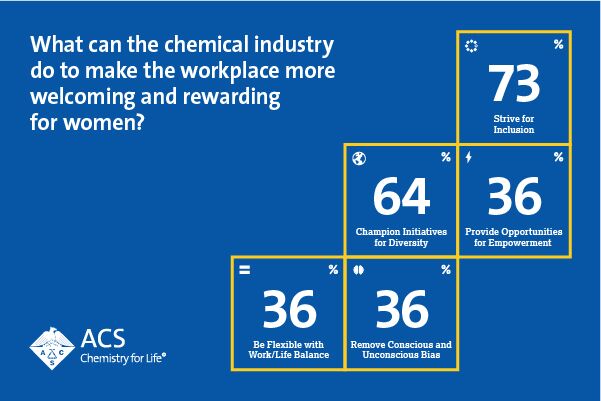
Key Takeaways:
- Bonnie Charpentier explains the herculean tasks of drug approval on an international level
- The biggest issue biopharma industry will confront as the pandemic slows down
- Bonnie shares her most gratifying ACS volunteer role over the years
Cytokinetics’ mission is to develop potential medicines that may improve the “healthspan of people living with cardiovascular and neuromuscular diseases of impaired muscle function.” What are some of the primary obstacles that will need to be overcome to achieve success?
There are a variety of obstacles biopharmaceutical companies face in the process of bringing new therapies to patients. These may include finding the right pre-clinical animal models, potential safety signals in early phase development, clinical trial design and recruitment challenges (magnified currently by restrictions due to the pandemic), manufacturing obstacles, meeting the expectations of regulatory agencies and many others.
For Cytokinetics, we are pioneering an entirely new pharmacology which brings unique challenges and opportunities. We are exploring novel mechanisms of action to increase, modify and/or improve impaired muscle function. Our scientists have developed a deep understanding of the mechanisms of action of our drug candidates, which may be used for a variety of different diseases. We are a very patient-focused company, and we work hard to understand the needs of patients and develop the best clinical trial designs to test the efficacy and safety of our drug candidates to meet those needs.
Since drug regulatory requirements differ country by country, generally speaking, how does a biopharma company develop a drug that can be submitted for approval in multiple countries around the world? That seems a herculean task.
Keeping up with individual country requirements can indeed be complicated and time-consuming since meeting the requirements must be built into development programs for Clinical, Nonclinical (animal and in vitro studies), and Chemistry, Manufacturing and Control (CMC) data acquisition.
We are aided greatly by the International Council for Harmonization of Technical Requirements for Pharmaceuticals for Human Use (ICH) guidelines. ICH, founded in 1990, and formed as an international association based in Switzerland in 2015, is an initiative that brings together regulatory authorities and the pharmaceutical industry to achieve greater harmonization of technical guidelines and requirements for medicinal product registration.
The initial membership was Europe (EC), the US, and Japan, but now has 17 Members and 32 Observers. ICH guidelines are followed around the world, although there are still many country-specific requirements which must be met to have a new medicine approved in individual countries.
Guidelines and regulations are often open to interpretation, and pharma companies hold meetings with regulatory authorities to obtain scientific advice and get agreement on key aspects of studies to be done in CMC, toxicology, human trials for safety and efficacy, statistical approaches, and other details of the data needed for drug approvals. When the different regulatory authorities do not agree on specific approaches, the company must decide how to conduct studies to best meet disparate requirements and opinions. This is one of the many things that keeps the job of Regulatory Affairs interesting.
What's the biggest question the biopharma industry will confront as the pandemic winds down?
There are many questions, but two that seem particularly pressing and interesting are what is the “new normal” for the conduct of clinical trials, and the “new normal” for the biopharma workforce.
During the pandemic, in-person clinical visits for participants in clinical trials have been often limited or impossible. Sponsors of trials had to devise, with the physicians and staff trial sites, new ways to engage with patients and gather data. For example, ways to measure trial endpoints at home had to be developed along with processes to ensure reliability of those measurements. Virtual visits have been employed, as well as visits to patients’ homes by specially trained personnel.
The normal on-premise conduct of audits done by trial sponsors of clinical trial sites and vendors (such as clinical laboratories) to oversee quality and compliance aspects of trial conduct had to be accomplished through development of virtual audits. Picture trying to do a walk through of a manufacturing site by means of someone carrying a laptop with camera around the facility. Some of these virtual procedures were quite useful to make it easier for patients to participate in a clinical trial; it will be interesting to see how virtual procedures remain after the pandemic restrictions are lifted.
Biopharma shares with other industries the challenges of what the “new normal’ will be for employees. Obviously, laboratory work requires people to be on premise, but many other positions can be done effectively working from home. How many people will return to full-time on-premise work in the future, and how will communications be adapted to fully include participation by remote employees? How will that affect collaboration and innovation? These are interesting questions with no simple answers and will require flexibility and experiment.
Regarding your career, what are some of the more pivotal decisions you made along the way?
My choice of a PhD dissertation topic proved pivotal to my career. Studying the effects of environmental conditions (light, oxygen, gravity) on plant biosynthetic pathways required a lot of analytical chemistry. That training in analytical led me to accept a job offer at Procter and Gamble. The choice of taking an industry job launched a much different career than if I had pursued academic positions (which was my original expectation). The experience at P&G made me appreciate the outstanding scientists I could work with in industry, and the analytical tools that were available for solving problems.
The next decision that was pivotal in my career was to move from analytical chemistry to regulatory affairs. That change was driven by my growing fascination about what was required for a new medicine to gain approval for use. I was fortunate that Syntex took a chance on me to teach me the field, and I have loved being able to see all parts of the science of discovering, inventing and developing new medicines and how to fit those into the strategy of planning the studies and consolidating all of the data needed to prove whether a potential new drug is safe and effective.
Finally, moving from large to small companies has provided perspective into the advantages and disadvantages of different company structures, and an appreciation of what it takes to build a supportive framework for drug development without creating inefficient bureaucracy.
Speaking of your PhD, how does someone determine whether pursuing a PhD is a good career move?
That choice is a very individual one and should be driven by what is important to the individual. Do you want a job or a career? Do you want the freedom to pursue research that interests you? Is it important to you to make a lot of money? Do you think you would like to teach, and at what level? Do you want to stay in chemistry or use your science training to move into other pursuits? What do you need to be fulfilled in a career?
For me, it was an easy decision. I wanted to pursue a PhD because I wanted to prove to myself that I could do it. It was more of a life decision than a career decision. When I decided to take my anthropology degree and go for a PhD in plant physiology, that seemed like the most effective way to truly learn the discipline. I also wanted the option to teach at the university level, so a PhD seemed necessary. I recently saw an article by Bill Carroll in “ACS Industry Matters” that expressed the same sentiment – do it because you want it. It is a decision I have never regretted.
These days, there is a lot more fluidity for individuals moving between industry and academia (you can do both), as well as pursuing government or non-profit jobs. My personal opinion is that the credential of the PhD is useful to have on your resume or CV for any of these areas.
In a January 7, 2019 C&EN article, you suggested that your experience as the first woman in your graduate school laboratory, and in your section at your first post-graduate school job, was less than welcoming, respectful and supportive. Can you elaborate on what you experienced? And whether you think significant change has arrived since that time?
My experiences as the first woman in my graduate school lab, and in my position as the first woman in management in my analytical laboratory area were interesting. Looking back, it seems to me that the challenges were mostly due to the newness of the situation for everyone. As the new kid in the lab, I was subject to a bit of testing, and I’m not sure the guys knew what that should look like when the new kid is female.
For example, we spent a fair amount of time in the green house and tending to wear t-shirts, cutoffs and flipflops due to the heat. The guys took to trying to use squirt bottles to hit my polished toenails (I won’t go into the obvious safety considerations). After a few weeks, I simply lined them up and said, “OK, that was funny for the first couple of days, but that’s enough.” They agreed and we moved on. I didn’t feel hostility, but some awkwardness as we all got used to each other in that venue.
In my initial industry job as a manager, my first direct report was an older gentleman who had a reputation for disliking PhD’s and having a bad attitude about women in the lab. It took us a little while to work out a mutually respectful relationship, but we got there.
How has your family influenced your leadership style?
My parents set the example of hard work and taking responsibility. My mother was a very intelligent, but very unassuming person; she taught me that it is possible to lead without being loud.
Having children taught me about priorities and empathy. It is important to me that the people who report to me feel comfortable putting family first, and that they feel valued as people as well as employees. My family also influenced me about the importance of having fun, especially when doing hard work. I want the teams who work for me to be able to enjoy the comradeship of getting difficult projects accomplished.
What are some personality traits that have been most instrumental in your career success?
I am innately more of a generalist than a specialist, which has influenced my career choices and successes. Characteristics that I admire in others and attempt to employ in my own work include determination, striving for excellence, empathy, listening skills, flexibility and placing a high value on teamwork. I find it useful to try to keep a sense of humor and use humor on occasion to diffuse difficult situations.
You have served in countless ACS volunteer roles. Which of those roles was most gratifying to you?
Three areas have been particularly gratifying. My leadership positions in two local sections provided opportunities to gain leadership skills and establish programs that were good for the community and very gratifying (e.g., establishing a program of hands-on chemistry activities with children in homeless shelters). It has been wonderful to work with dedicated teams of volunteers who have become lifelong friends.
My ACS Board service, including as Board Chair, was rewarding in many ways, working with dedicated colleagues and ACS staff in taking responsibility for many fundamental decisions and the overall health of the Society.
Finally, having the honor of serving in the ACS presidential succession was a wonderful experience. I especially enjoyed communicating with members all over the world and hearing their ideas and aspirations. Building partnerships and collaborations with other professional societies based on our shared values was also very gratifying. I am very grateful for the opportunities ACS has given me, and for the amazing professional community we share.
With respect to your time in the ACS Presidential succession, what was the most memorable trip you made during that period?
I was fortunate to serve during the International Year of the Periodic Table and participate in celebrations to open and close IYPT. These meetings helped build international partnerships for programs which continue today. In my travels to local sections in the US, and internationally, I interacted with many members. In some locations in other countries, I met members of long standing who had never had the opportunity to attend an ACS-hosted event and were delighted to do so.
My most memorable trip had the itinerary of visits to South Africa, then to Botswana for the meeting of the Federation of African Societies of Chemistry, and then on to Bucharest, Romania for meetings with EuChemS and our international section there. It was an amazing experience showing the richness and diversity of chemistry and chemists in different areas of the world, and a joy to visit with them.
According to an article by Matthew Slaughter in the 12.14.20 issue of the Financial Times, U.S. federal R&D peaked in 1965 at 11.7% of federal spending. By 2019, total federal R&D spending fell to 2.8%. Why don’t policy makers prioritize more R&D spending?
Recognizing the danger of getting on a soap box here, I’ll try to keep this brief. The major factor spurring federal R&D spending in the early 1960’s was the space race, started in 1957 with the launch of the first artificial satellite, Sputnik, by the Soviet Union. The US and its citizens were dedicated to funding US supremacy in space, culminating in the first landing of astronauts on the moon in 1969. Since the late 1960s federal R&D spending has continually declined, and the public support for funding research has also declined.
ACS has been working hard to encourage support of science education and research for many years. Very few policy makers have science backgrounds, and unfortunately, there are far too many who have no appreciation for science or the need for basic research. Now is a time for us to strengthen our influence on public opinion in support of science, and encouragement of scientists to take on jobs as policy makers.
As one who was born in Cajun country (on the state line between TX and LA), and is currently a decades-long resident of CA, which ACS National Meeting site is your favorite among New Orleans, San Francisco, and San Diego? Why?
Nope, I won’t declare a favorite, but I’ll be glad to share what I think are the strengths and some downsides of each. I love the food, music, and rich culture of New Orleans, partially because it feels like home in many ways. The distances required to walk to and through the convention center can be a challenge.
When the meeting is in San Francisco, it is fun to welcome everyone to the Bay Area. The downside for me is that I’m not really away from home, so it is harder to take a break from my day job.
San Diego is an easy flight for me, but not necessarily so for other meeting attendees. Thinking about the different sights, sounds and feel of meetings in different locations does make me look forward to when we might convene in person again.

Bonnie Charpentier is Senior Vice President of Regulatory and Compliance at Cytokinetics, Inc., a company dedicated to the discovery and development of novel small molecule therapeutics that modulate muscle function. Prior to Cytokinetics, Bonnie worked in drug research and development at companies including Syntex and Roche, and as an analytical chemist at the Procter and Gamble Co. She holds a B.S. degree in anthropology and a Ph.D. in Plant Physiology.
Bonnie served as President of the American Chemical Society in 2019. She previously served on the ACS board of directors, including as the Chair of the Board. She has served on and chaired a variety of Society committees and task forces at national levels, as well as being active in local sections, divisions and regional meetings. At the local level, she has been instrumental in establishing chemistry workshops for teachers, interviewing workshops for students, and an outreach program for hands-on chemistry with children in homeless shelters.
In her ACS work, Bonnie has emphasized the importance of communicating the value of chemistry through public outreach and education. She is a strong advocate for ACS programs that increase the effectiveness of ACS's legislative advocacy through member involvement, and for increasing effective collaboration within ACS, and with other professional societies. She is passionate about the importance of public service, and about turning molecules into medicines.
This article has been edited for length and clarity. The opinions expressed in this article are the author's own and do not necessarily reflect the view of their employer or the American Chemical Society.
Copyright 2022 American Chemical Society (All Rights Reserved)











